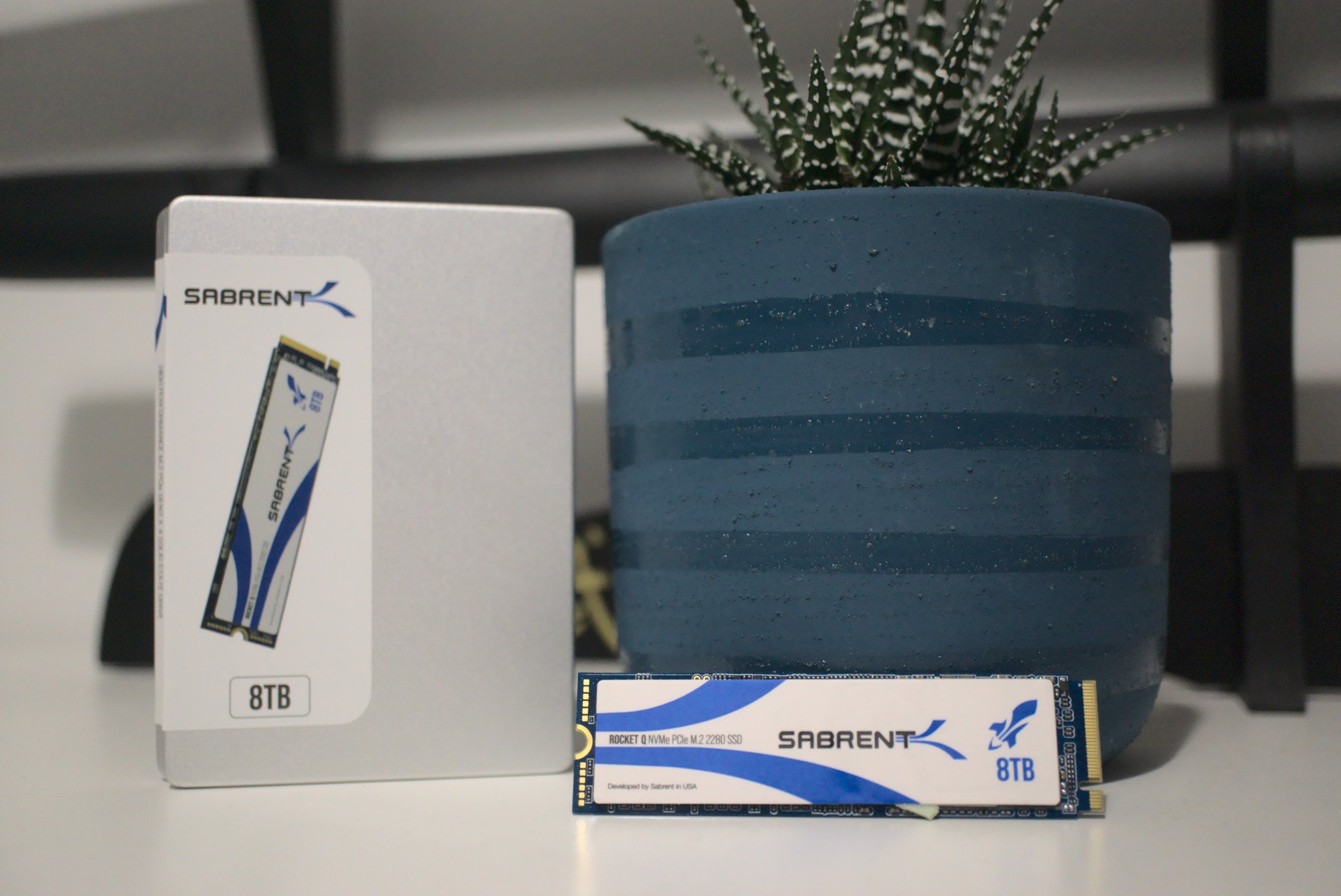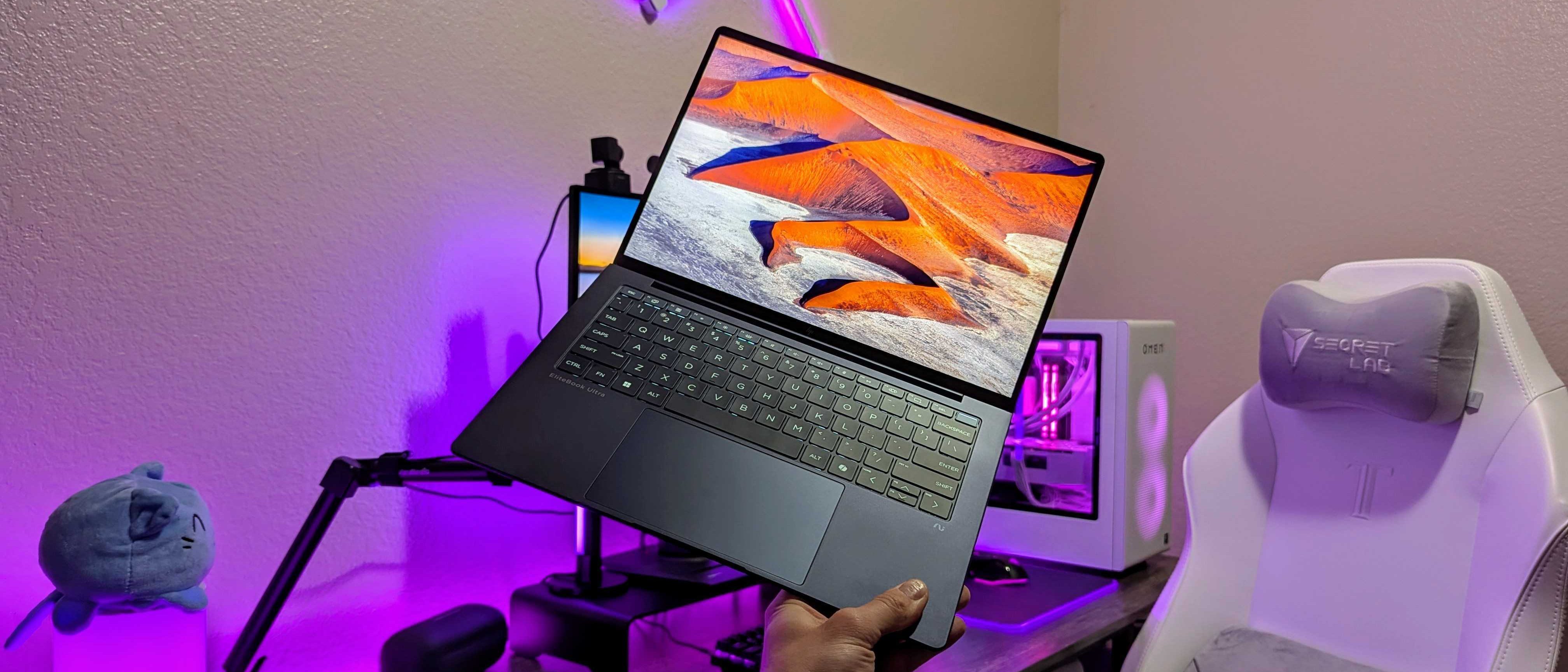Solid-state storage (SSD) is not only getting far more affordable for PC owners to take advantage of, but the technology is catching up to mechanical drives in terms of capacity. We previously reviewed Sabrent's 4TB Rocket Q NVMe SSD, but the company wasn't content with stopping there and released an 8TB version.
Is it as good and worth the considerably high asking price?
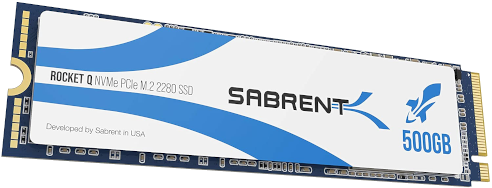
$2,000Bottom line: The Sabrent Rocket Q 8TB NVMe SSD is rapid fast for PCIe 3.0 storage and has a massive amount of free space to store all your stuff.
For
- Solid performance
- Amazing 8TB capacity
- Good endurance of 1,800 TBW
- Five-year warranty
Against
- Not as fast as PCIe 4.0
- Blue PCB
- Gets real hot
- Incredibly expensive
Sabrent Rocket Q offers amazing amount of storage
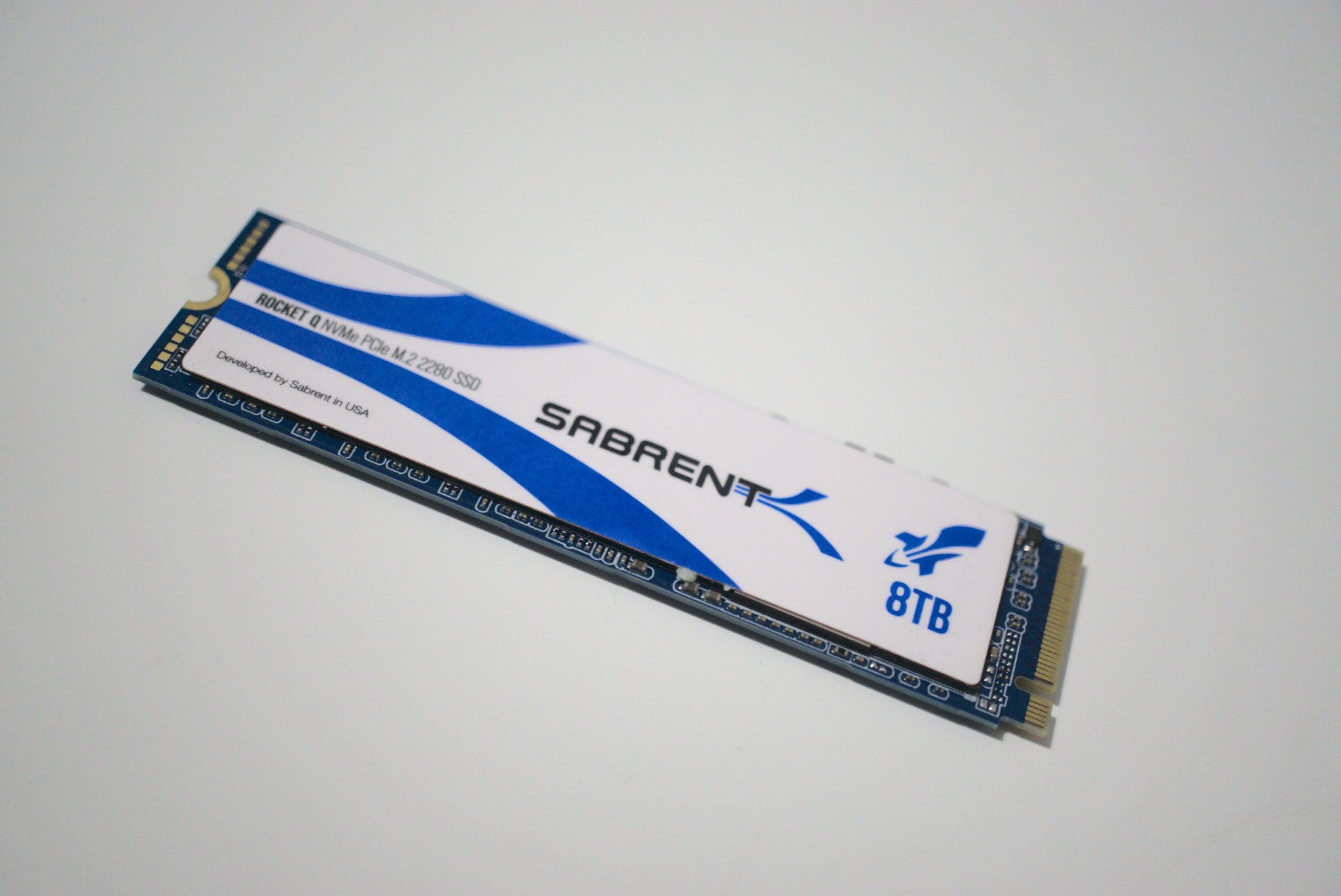
Sabrent's current Rocket Q line-up hit 4TB as the maximum capacity, but the company has rolled out an 8TB version. This takes QLC NAND to an entirely new level. In the most basic sense, QLC is the technology used to allow you to store data on the SSD. It's a little slower than more expensive TLC NAND, but if this was a TLC drive, you'd be expected to pay even more for the luxury.
For most people, and I mean that by using an SSD to install Windows, games, or software, QLC is more than adequate. QLC has also come a long way, being the budget option for NAND on SSDs. Just look at this monster of an SSD and the specification sheet.
Sabrent managed to cram a whopping 8TB onto such a small SSD.
8TB of capacity (about 7.7TB in the real world). Read and write speeds of 3,300MB/s and 2,900MB/s, respectively. An endurance rating of 1,800 TBW (terabytes written), and a five-year warranty if you remember to register the SSD after receiving it via armed escort courier.
| Category | 500GB | 1TB | 2TB | 4TB | 8TB |
|---|---|---|---|---|---|
| Controller | Phison E12S | Phison E12S | Phison E12S | Phison E12S | Phison E12S |
| Form factor | M.2 2280 | M.2 2280 | M.2 2280 | M.2 2280 | M.2 2280 |
| Seq Read | 2,000MB/s | 3,200MB/s | 3,200MB/s | 3,200MB/s | 3,300MB/s |
| Seq Write | 1,000MB/s | 2,000MB/s | 3,000MB/s | 3,000MB/s | 2,900MB/s |
| Endurance | 120 TBW | 260 TBW | 530 TBW | 940 TBW | 1,800 TBW |
| Warranty | 5 years | 5 years | 5 years | 5 years | 5 years |
| Price | $70 | $120 | $250 | $720 | $2,000 |
| $ per GB | $0.14 | $0.12 | $0.13 | $0.18 | $0.25 |
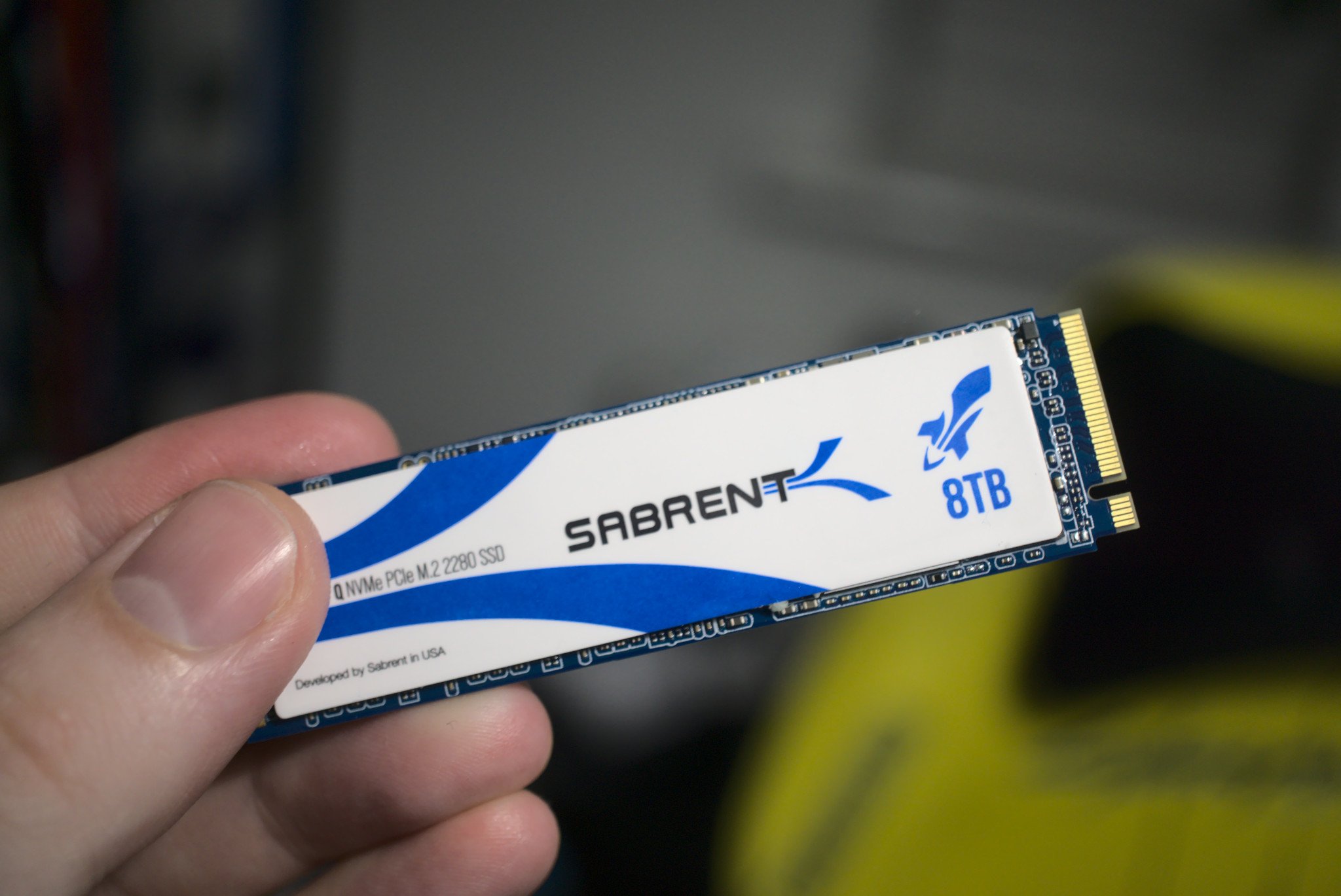
Controlling everything is the Phison E12S, which is actually pretty good and more than capable of handling such high capacities. Because we're cramming so much onto such a small PCB, heat is bound to be an issue and the Sabrent Rocket Q 8TB heats up rapidly when being hit by read and write commands.
Like the 4TB and other variants of the Rocket Q, Sabrent uses a copper-backed sticker to aid with thermals a little. It doesn't make a huge difference, but without it I reckon you'd be looking at an additional few degrees on the temperature probe. If your motherboard comes with one, I'd absolutely recommend using a thermal pad and metal heat spreader.
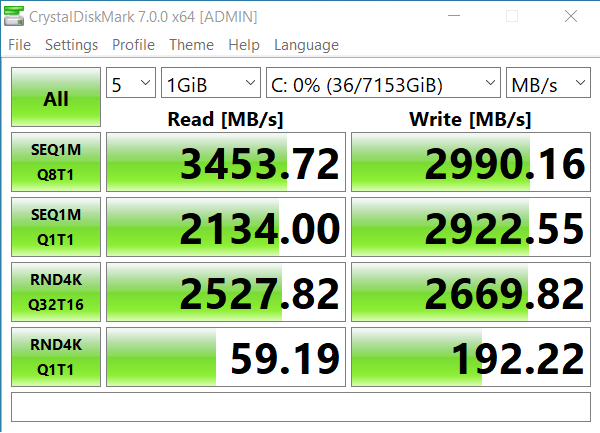
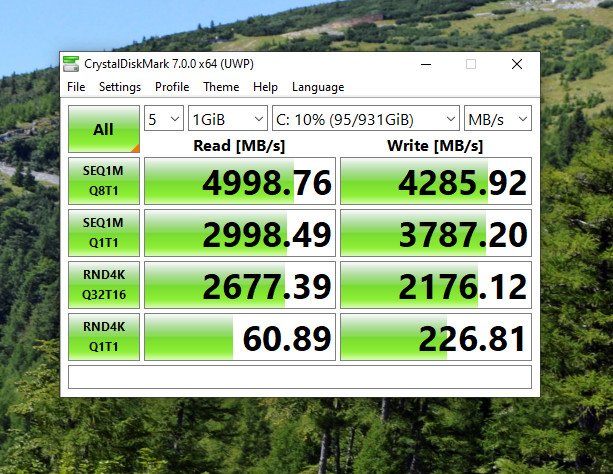
Using CrystalDiskMark 7, recorded results were in line with what I expected. The 8TB drive performed admirably for a PCIe 3.0 NVMe SSD. Compared to the company's PCIe 4.0 SSD, you can see the difference in speeds, but at just shy of 3,300MB/s, you'll not notice any dip in performance unless you require high bandwidth storage.
I installed some heavy games to try out the 8TB drive, including Mount & Blade II: Bannerlord, Grand Theft Auto V, and Total War. Loading times were minimal, aside from GTA V where not even the most rapid drive in the world would see those reduced. Windows 10 also booted in little more than a few seconds from POST.
This SSD performs like a top-tier PCIe 3.0 SSD, which is what you'd expect with the price tag.
What you might dislike about the Sabrent Rocket Q 8TB
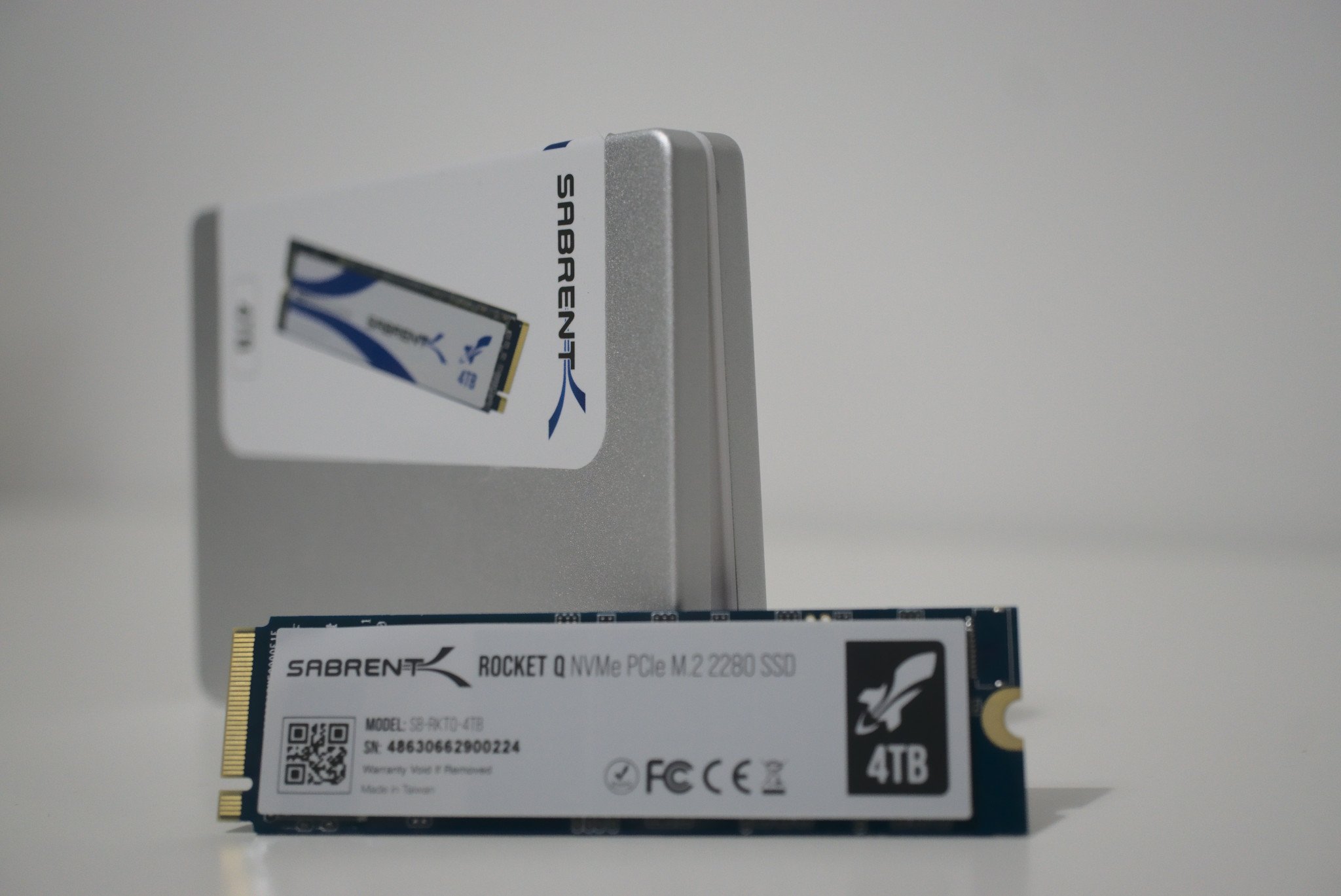
So what's to dislike about the Sabrent Rocket Q 8TB? Well, we need to talk about that price. An RRP of $1,500 and current pricing of $2,000 put this SSD way out of reach for most system build budgets. It's frankly an insane amount of money, especially when the 4TB only costs $720. The $0.25 per GB of here isn't great at all.
This thing also gets seriously hot. It's not a big issue if you only plan on gaming and/or installing an OS on the drive, but if you happen to be hitting the SSD hard continuously, you may encounter some thermal throttling to keep the PCB safe from damage. That's not good at such a high price to pay. Still, if you need high-capacity SSDs and don't mind PCIe 3.0 speeds, this is the king of storage space.
Should you buy the Sabrent Rocket Q 8TB?
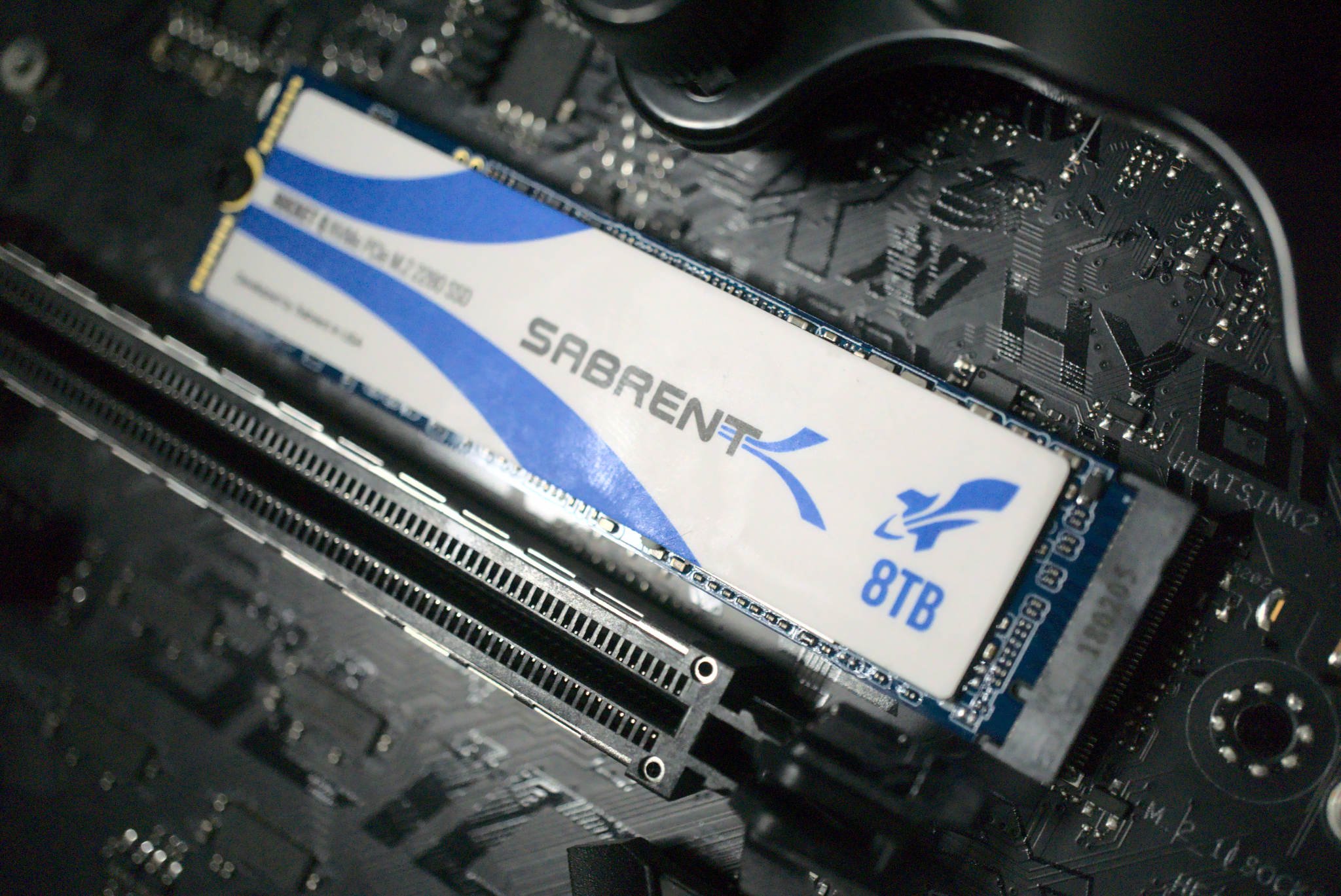
This is a tough call to make. Whether you need an 8TB PCIe NVMe SSD largely depends on ... well, whether you actually require an 8TB SSD. If you're upgrading from a mechanical HDD with the same capacity, this may make a little more sense, especially if you seek faster read and write speeds than that of SATA SSDs.
The price is just too high for most system builders and you'll need to make sure you activate that five-year extended warranty. For the time being, however, the $ per GB is not in line with the rest of the Rocket series. Sabrent knows they have a good thing going here with the 8TB Rocket Q and they will gladly charge you for the luxury.
Using QLC NAND, it's not the fastest drive around, but that's not the highlight here. It's all about that 8TB capacity. Read speeds are still pretty good at around 3,300MB/s, allowing you to boot into Windows and fire up your favorite game before you can finish making a brew.

Rich Edmonds was formerly a Senior Editor of PC hardware at Windows Central, covering everything related to PC components and NAS. He's been involved in technology for more than a decade and knows a thing or two about the magic inside a PC chassis. You can follow him on Twitter at @RichEdmonds.
